What is Anal Fissure?
What is Anal Fissure?
An anal fissure is a small tear, rip, cut, or crack in the lining of the anus. It is one of the most common causes of buttock pain. This tear causes contraction of the internal anal sphincter and thereby reduce blood flow to the anus, which may lead to the pain and deeper tear.
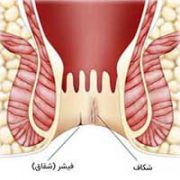
Fissure is a condition that varies depending on the area of the tear or crack. Different types of fissure can occur in the human body, such as anal fissures and foot fissures.
Fissure is just a tear or crack in the inner lining of the body organs or in the skin surface. If fissure left untreated, it may become deeper and chronic and also extend to the underlying muscles.
If this tear or crack occurs in the lining of the anal canal, it is called an anal fissure. An anal fissure is a condition, but it is often confused with other anorectal disorders, such as hemorrhoids.
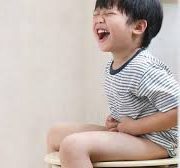
Anal Fissure
An anal fissure is usually a linear or oval shaped tear in the soft, moist tissue that lines the anus at the end of the anal canal, which, in the short term, usually involves only the inner lining of the anal canal, and in the long term, involves the entire thickness of the anal mucosa. An anal fissure affects both men and women equally.
Age of Developing Anal Fissure
Anal fissures can affect people of all ages but risk of developing them decreases with age. Individuals more likely to develop anal fissures include women who are in the postpartum period, young people, middle aged adults, and children younger than one year.
In most people, this condition may easily heal by correcting bad eating habits and preventing constipation. However, it can recur if constipation and other causes are repeated. Failure of medical treatment to heal anal fissures is an indication for surgical intervention. Today, researchers are looking for a way to find a successful medical treatment for anal fissure to be replaced with its surgical treatment.
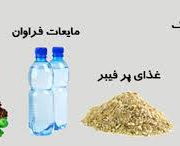
Anal Fissure Causes
An anal fissure is often caused by trauma or injury to the inner lining of the anus during bowel movements. The exact cause of anal fissures is still unknown, but it can be said that the starting point of an anal fissure is the same severe trauma to the anal lining.
Anal Fissure Symptoms
- One of the symptoms of anal fissures is sharp pain during bowel movements. Even there may be seen streaks of blood on the stool or on the toilet tissue after a bowel movement, but generally the amount of bleeding in anal fissures is small.
- Itching and irritation in the anal area are important symptoms of anal fissures.
- Another symptom of this condition is its recurrence, that there may be seen no symptoms for a period of time and after a while they may appear again.
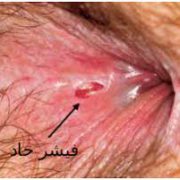
Anal Fissure Prevention
- Drink at least 8 glasses of water a day to prevent anal fissures.
- Include high-fiber foods in your diet.
- Do not sit on the toilet for a long time when having a bowel movement.
- If you have an anal fissure, take stool softeners or laxatives.
- Avoid straining during bowel movements.
Anal Fissure Treatment
Anal fissures may be acute or chronic. An acute anal fissure is seen as a linear tear, while a chronic anal fissure is a deeper tear with thickened edges. This fissure is often associated with a skin tag at the edge of the anus and an anal papilla at the upper end of the fissure in the anal canal.
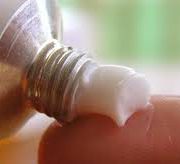
Acute Anal Fissure Treatment
To treat acute anal fissures, you should first treat the constipation by eating high-fiber foods and drinking enough fluids. You can apply heat to the pain area to reduce pain and use nitroglycerine and diltiazem ointments to treat anal fissures. Sitz bath for 15 minuets three times per day can assist healing process.
Chronic Anal Fissure Treatment
Anal fissures usually heal within a few weeks, but those that last more than 6 weeks are called chronic fissures. The methods of treating chronic anal fissures are as follows:
Laser Treatment for Anal Fissure
Laser therapy is most effective and definitive surgical procedure for chronic anal fissure. The patient does not require an overnight hospital stay for laser treatment of an anal fissure, and this surgery is performed under local anesthesia. The patient will not feel pain one day after laser treatment. Over time, pain will be reduced which can be relieved with painkillers, antibiotics, and ointments.
Botox Injections for Anal Fissure
Botox injections cause temporary paralysis of these muscles, and in some treatment centers, surgical treatment for chronic anal fissure has been replaced with Botox injections. Although Botox injections may carry very little side effects, the results of these injections at healing chronic anal fissures are more definitive than other treatments.
When medical treatment fails, surgical treatment for definitive healing of chronic anal fissure is used. This surgical treatment eliminates the spasm of the internal anal sphincter.
It can be said that 95% of the surgical treatments are successful at healing chronic anal fissures, but there may be a small risk of recurrence in some patients after their initial successful surgery.
The Difference between Anal Fissures and Hemorrhoids
An anal fissure is a small tear or cut in the lining of the anus. This condition can cause sharp pain or burning in the anal area during and after bowel movements. Whereas hemorrhoids, also known as piles, are most commonly caused by chronic constipation or diarrhea. If constipation or diarrhea persist, hemorrhoids may get worse. In many cases, this condition does not cause significant signs and symptoms.
The main symptom of hemorrhoids is painless bleeding. However, these signs and symptoms vary depending on whether the hemorrhoids are internal or external. For example, an internal hemorrhoid may cause bright red blood on the stool or the toilet tissue but not associated with pain, feeling of an incomplete bowel movement, leakage of feces and anal mucus, and sometimes masses and swollen anus due to straining during bowel movements. In severe cases, the internal hemorrhoids may prolapse out of the anal canal with repeated straining during bowel movements.
Herbal Therapy of Anal Fissures
To treat anal fissures with herbal medicines, people with anal fissure can apply quince seed mucilage to the skin, because this herb is effective for alleviating and healing anal fissure. They can also benefit from Vitex agnus-castus and sit in the decoction of it or apply honey to the anal area and massage it gently to heal their anal fissures.



Leave a Reply
Want to join the discussion?Feel free to contribute!